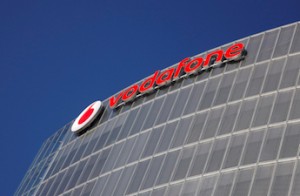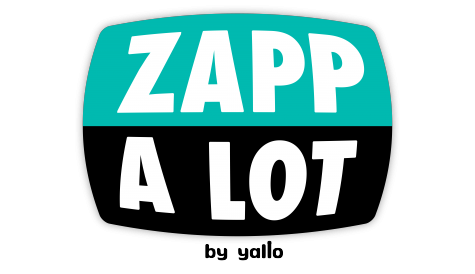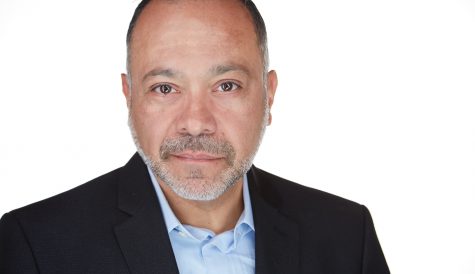
After more than 40 years of operation, DTVE is closing its doors and our website will no longer be updated daily. Thank you for all of your support.
Vodafone and Liberty Global: the battle for hearts and minds
First comes the deal. Then the battle for hearts and minds. Liberty Global and Vodafone have their €18.4 billion agreement. As long expected, Liberty will sell Germany’s Unitymedia to the mobile giant along with its central and eastern European assets with the exception of Poland and Slovakia.
 In announcing the agreement, Liberty Global and Vodafone were at one in hailing the creation of what Vodafone CEO Vittorio Colao called “the first truly converged pan-European champion of competition”.
In announcing the agreement, Liberty Global and Vodafone were at one in hailing the creation of what Vodafone CEO Vittorio Colao called “the first truly converged pan-European champion of competition”.
Germany is at the heart of the deal and the likely source of resistance, with Deutsche Telekom CEO Timotheus Höttges already describing the tie-up as “completely unacceptable”.
This raises the question of how far Liberty and Vodafone are from winning the hearts and minds of regulators – and consumers – in support of their plan.
On one level, Höttges’ objections are risible. Deutsche Telekom remains by far the bigger player in the German market, with 13.2 million customers against Vodafone and Liberty’s combined 10 million. The combination of Vodafone and Unitymedia does not remove any competition because there is little overlap between the companies regionally-focused networks. On the contrary, the combination of the pair would create a serious competitor to Telekom across broadband and mobile with a national reach for the first time.
Höttges’ claim that Vodafone plus Unitymedia would have a larger share in TV distribution in Germany might be more significant from a regulatory point of view if cable TV is considered as a distinct market in its own right – though why this would make any sense is less clear.
Of course, national regulators do have a habit of training a beady eye on cable in countries where historically it has been seen as a utility-type service. Belgium is one of the worst offenders, implementing an ‘open cable’ regime where cable TV providers had to open up their networks to third parties on a wholesale basis – with only Orange taking this up. More recently regulator the BIPT tried to regulate cable broadband access, forcing Telenet and Voo to open up their networks on the basis that cable broadband was somehow distinct from other types of broadband.
In Germany, too, regulators have history when it comes to treating cable as a special case. Liberty Global has after all tried to consolidate the industry before, first in 2002 when it tried to acquire Kabel Deutschland at a time when it had a 52% stake in the recently combined EWT/Primacom. At that point – ironically enough – the willing seller of Kabel Deutschland was Deutsche Telekom, the management of which has evidently had second thoughts in the intervening 16 years. However, competition watchdog the Bundeskartellamt nixed the deal on the grounds that it would reduce competition in “the German cable market”.
Liberty came back for a second go in 2013 when Providence Equity Partners put Kabel Deutschland up for sale, this time being simply outbid by Vodafone.
The market has changed beyond recognition since 2002 of course, when cable broadband was in its infancy and OTT TV was still not much more than a twinkle in Reed Hastings’ eye. In the case of Germany, regulators would be better advised to ponder why Europe’s richest economy still lags many of its neighbours in the availability and cost of high-speed broadband and advanced TV services.
Nevertheless, the deal does have opponents – and not just Telekom. Fibre-to-the-building operator association the Bundeslverband Glasfaseranschluß (Buglas) has already registered its opposition in a letter to Federal economic affairs and energy minister Peter Altmaier. Buglas argues that the economies of scale generated by the merger would undermine the business case for the building out of FTTH/B networks by regional players given the “declining margins in the telecommunications business”.
While a case against the merger based on the inference that it could drive down the cost of high-speed broadband for consumers might raise an eyebrow or two, Buglas’ claim that the deal would distort competition in the supply of services to housing associations may carry more weight. The group rounds off the case against by claiming that Vodafone-Unitymedia’s ability to bundle products would undermine its business and by arguing that any attempt to remedy matters by regulating access would be a retrograde step.
The German Federal Network Agency – the Bundesnetzagentur – which regulates utilities, telecoms and the post and railway services, has also made itself heard since the deal was announced, with agency chief Jochen Homann suggesting that Telekom may no longer be the dominant service provider in certain cities. The Bundesnetzagentur has already been looking at whether cable operators have gained a dominant position in telecoms in certain regions.
On the plus side, some politicians have expressed support for the deal. Joachim Pfeffer of the CDU, who has served as deputy chairman of the Bundesnetzagentur’s advisory board, was cited by the Handelsblatt newspaper as saying that the merger would be “a major leap forward” for broadband and digital innovation.
Given Germany’s lack of broadband progress to date, Colao’s argument that the combination would create a challenger to a dominant fixed-line incumbent and would contribute the creation of the Gigabit society in Germany may be more effective in winning hearts and minds than Buglas or Telekom’s case. Vodafone has committed to invest heavily in enabling the creation of “the Gigabit society” and ensuring Germany’s “digital competitiveness”. Colao portrayed Vodafone’s ability to deliver convergence between fixed and mobile services as a positive aspect of the deal.
In his remarks on the deal during Liberty Global’s own presentation to analysts, CEO Mike Fries said that the German broadband market was “screaming for investment, consolidation and convergence”. Fries made a point of highlighting the European Commission’s role in deciding whether a pan-European merger of this scale will be a good thing, and that he did not expect it to be referred back to the German regulator.
The argument is well made. Infrastructure competition is the best remedy to the well-established power of telecom incumbents. Seriously hobbling or actively preventing the deal is not going to lead to more competition and better services for German consumers.


